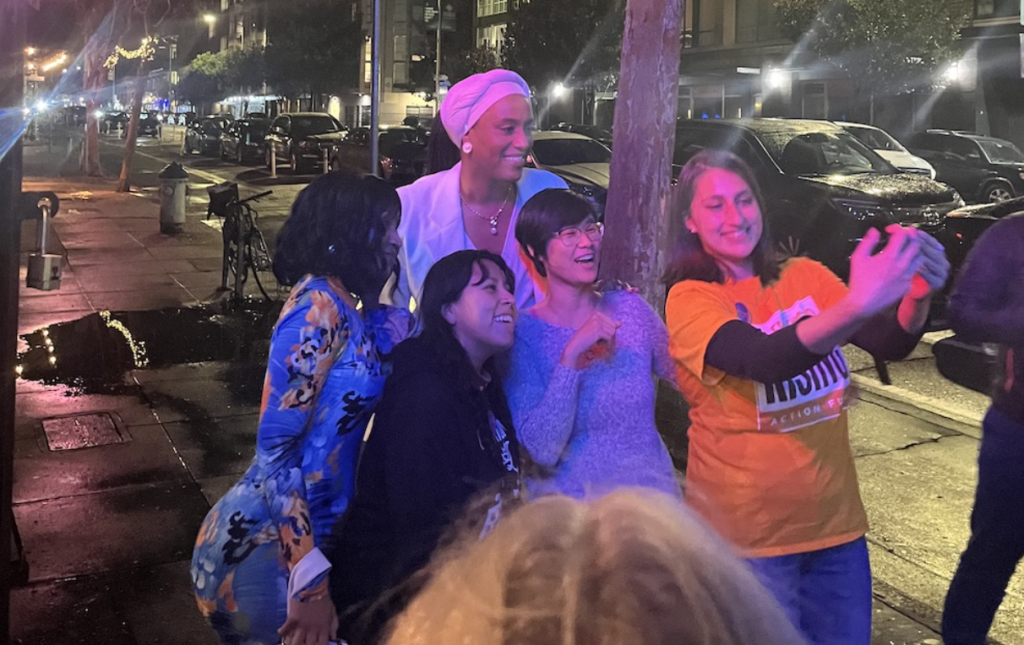The next 30,000 votes have been counted, and at this rate it will be well into next week before we have the final results.
That matters at this point only for two local contests: The D4 supe race and Proposition D.

The data is entirely clear, but in general, the later votes, the ones cast on Election Day, run more progressive in San Francisco. But so far, D4 seems to be pretty static: Joel Engardio is holding about a 500-vote lead. Gordon Mar will need to win about 53 percent of the remaining votes to pull this one out.
On the other hand, Prop. D, the housing measure backed by Mayor Breed and the Yimbys, is falling further behind. It was losing heavily on the west side of town, but as more east side votes come in, the margin of loss is growing.
So if that pattern continues, Prop. D is done.
But while the Chron is trumpeting how wonderful this election was for Breed, we can’t seriously talk about the outcome of the two supes races without discussing Breed’s success in gerrymandering the new supes districts.
The mayor’s people on the Redistricting Task Force set out with the specific goal of hurting progressives, and they did that in part by making D6 and D4 more conservative. In the old D4, Mar would be leading comfortably; in the new district, he may lose.
In the old D6, Honey Mahogany probably would have won. In the new district, she lost.
As Sup. Dean Preston notes:
That’s the backdrop for any discussion of the “electorate moving to the right” or the “progressives losing the narrative.”
In D6, Mahogany didn’t push a progressive narrative all that much; she ran on a platform of “safe streets” and more housing. She lost to a candidate who was a former spokesperson for the Police Department in a district that Breed designed for someone like Matt Dorsey.
In New York, where Democrats lost some Congressional seats they should have won, Rep. Alexandria Ocasio-Cortez blames the Dems failure to challenge the right-wing narrative:
This overreliance and insistence on leaning into Republican narratives on crime and safety hurt Democrats in the state of New York.
Instead of ignoring or even pivoting and commanding the narrative on crime and public safety, a lot of Democrats leaned into Lee Zeldin’s approach.
We as a party benefit from being very assertive about our vision and explaining not just what the stakes are and not just the consequences of what would happen given Republican victory, but also to lay down a vision and be unafraid about what we will do with power.
Now: This wasn’t a Great Victory for the mayor. She tried hard to stop Prop. H, which will force her to run for re-election in a year with much-higher turnout. Her housing measure lost. And now that she has demonstrated that she controls the DA’s Office and the School Board, she’s going to have to own the crime and school-performance issues.
Which will not get better under the policies she is pushing.
But if Engardio wins in D4, and Dorsey as is almost certain wins in D6, it will be a clear sign that the stunningly corrupt redistricting process worked—and that progressives running to the center doesn’t.
It will also show that Assemblymember Matt Haney decided that his own ambitions were far more important than the progressive community he once claimed to represent, and he cost that community a seat on the Board of Supes.
The Yimby narrative, the tough-on-crime narrative, don’t stand up to the scrutiny of historic, economic, and political reality. Most of the local news media don’t care to, or dare to, take this on.
But I think AOC is right: If progressives try to cede that ground to conservatives, they lose.






